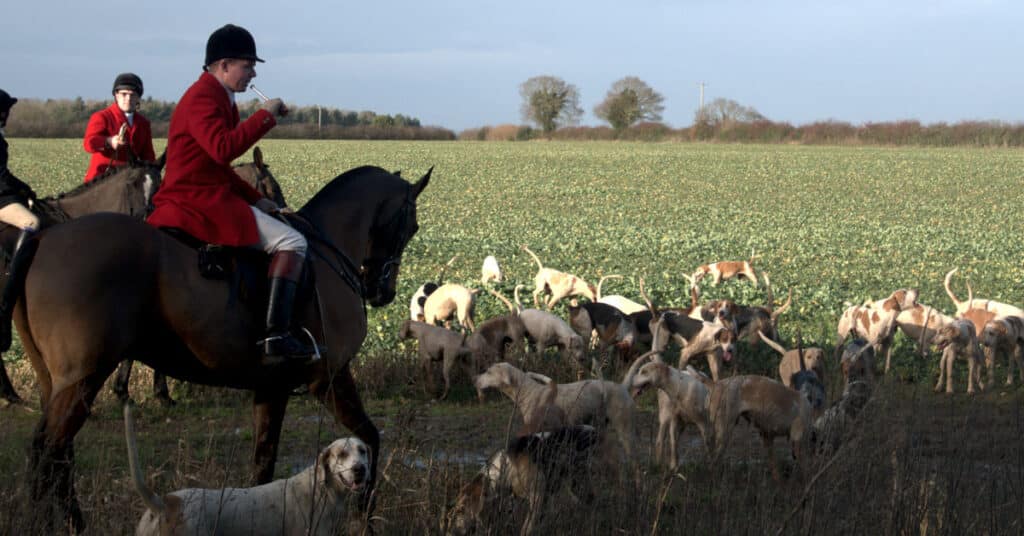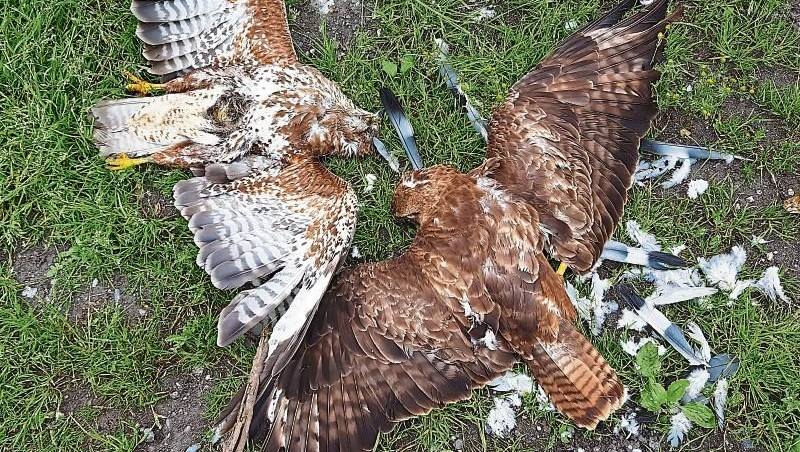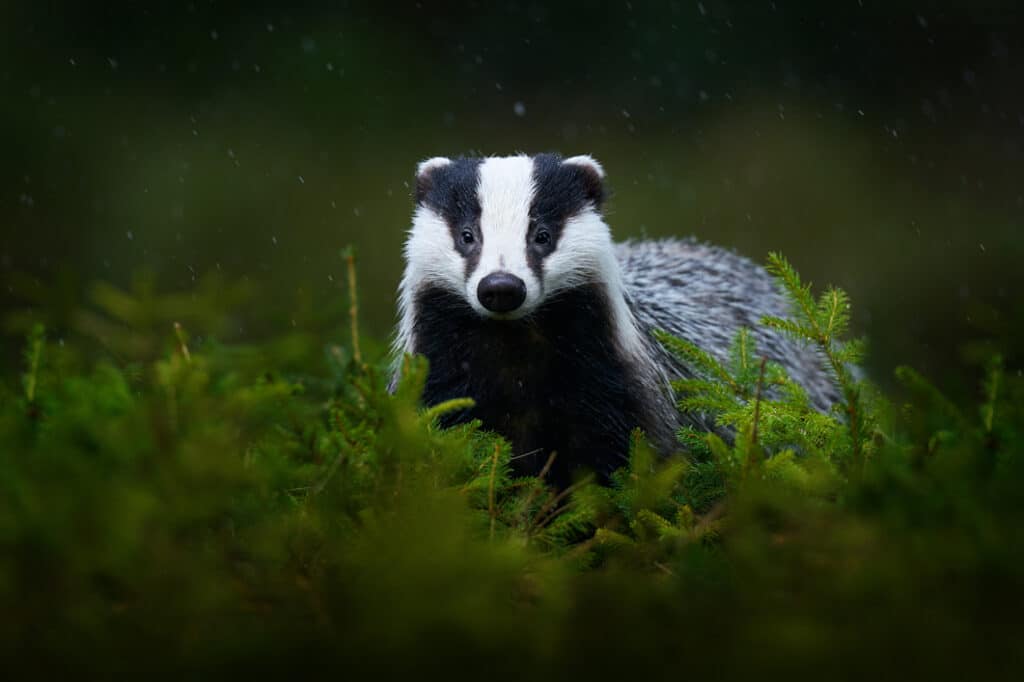A new report once more highlights how Britain’s criminal justice system is failing animals, allowing people to hurt or kill wildlife with impunity.
The report, compiled by Wildlife and Countryside Link, and containing information from different animal welfare charities, makes for damning reading. It shows that convictions in 2022 dropped by more than 40%, despite a record number of wildlife crimes being reported in 2021. These reports didn’t feed into successful convictions in 2022.

Wildlife and Countryside Link stated:
“In 2022, Link estimates that there were around 4,457 reported wildlife crime incidents in England and Wales, compared to 4,885 in 2021.”
Link also noted that the actual figures are likely to be even higher, due to data and reporting challenges. The organisation said:
“there was a notable 42% fall in subsequent convictions for wildlife crime, from 900 in 2021 to 526 in 2022.”
The report notes that too many people are walking away from their crimes with impunity, meaning that they are free to cause even more unnecessary suffering to wildlife.
Badger persecution
The report also has chapters written by various animal welfare organisations. The Badger Trust has, unsurprisingly, provided figures on badgers. It said that a total of 600 incidents of badger persecution were reported across England and Wales in 2022. The Trust stated:
“Many dead badgers found around roads can be found with injuries not typical of a traffic accident, suggesting criminal activity. A common modus operandi is to leave dead badgers killed by other means (baiting, fighting, digging, lamping, shooting etc.) at the side of the road to appear as if killed in a collision. Often multiple bodies are found at the same roadside location.”
The charity noted that sett interference accounted for 60% of badger crime. Many of those incidents involved hunting with dogs (i.e. fox hunters). Protect the Wild regularly reports on how fox hunters block or dig out badger setts (see here, here or here, for example).
- For more information on recognising, recording, and reporting crimes against badgers see our Protectors of the Wild page Badgers and the Law
Bat persecution
The Bat Conservation Trust (BCT) provided Link with figures about bat persecution. All bat species are theoretically protected in law, but BCT stated that there were 164 incidents reported across England, Wales and Scotland in 2022. The BCT was forced to request police forces for data, and 24 forces didn’t bother to reply – meaning that the true number of incidents of bat cruelty is likely significantly higher.
The BCT didn’t examine the number of convictions (or lack of) for bat crime, but it did give an example of a successful prosecution against property developers, who were fined for destroying bat roosts. The company was fined more than £7,400. This is, of course, small money for those who are set to make fortunes from developing homes. The BCT stated:
“The primary motivation for such offending is the prospect of time and money savings from non-compliance with the law. Developers cannot be allowed to put additional profits before the conservation of protected species.”
- For more information on recognising, recording, and reporting crimes against bats see our Protectors of the Wild page Bats and the Law

Hunting
The League Against Cruel Sports (LACS) contributed the chapter on hunting. It stated:
“Overall, the conviction rate fell from 53% to 40% between 2021 and 2022. Prosecutions of hunts are likely to be the tip of the iceberg of the problem of continued illegal hunting with dogs. The League Against Cruel Sports recently compiled a report of 526 eyewitness reports of hunts being involved in suspected illegal fox hunting in England and Wales during the 2022/23 season, to include 400 cases involving a hunt being seen chasing a fox.”
As Protect the Wild regularly points out, under the Hunting Act, convictions can only be secured if it can be proved that a hunt intended to make a kill. Of course, this allows hunts to argue that they were actually trail hunting, and that the murder of a fox was an accident. There have been a number of incidents where – despite there being substantial evidence provided by hunt saboteurs and monitors – the CPS has dropped the case because it was unlikely that a conviction would be secured.
LACS also pointed out that CPS administration failings also meant that cases were dropped:
“An illegal hunting prosecution against members of the Vale of White Horse Hunt, also involving charges of knowingly permitting land to be used for hunting, was dismissed at court due to procedural and administrative failures by the prosecution. Basic administrative failings also resulted in the dropping of a high-profile prosecution charging the Roal Artillery Hunt with hunting on Ministry of Defence land.”
On top of this, LACS also pointed out the paltry penalties given to anyone who is actually found guilty under the Hunting Act. It said that the fines handed out to those convicted
“underlines the lack of availability of custodial sentences under the Hunting Act and the relatively low level of penalties issued, especially compared to the income required to take part in hunting activities. The average fine for breaches of the Hunting Act is £406 (over the past five years). The average individual annual subscription for joining a Hunt stands at £2,250.”
Marine mammals
Whale and Dolphin Conservation, with contribution from the Seal Research Trust, provided the report’s statistics about marine mammal crime. It said:
“To illustrate the scale of reports outside of Cornwall, at St Mary’s Island 31 incidents of seal disturbance were recorded by volunteer observers and filed with the Northumbria Police in 2022. 16 of these were due to kayaks/SUPs, only 2 of the 31 incidents were followed up by the Police.”
The organisation stated that there has been a rise in humans carrying out activities on the coast, such as paddleboarding, kayaking and wild swimming, which has led to an increase in instances of wildlife disturbance. Because of this, animals need to adapt their behaviour. This can lead to
“animals abandoning favoured feeding or resting areas, and can even result in deaths, such as when young animals become separated from their mothers.”
Shockingly, Whale and Dolphin Conservation stated that between 2018 and 2022, there were zero successful convictions for marine mammal disturbance. It said:
“It is a continuing challenge to evidence disturbance of marine mammals with appropriate proof (i.e., images/ video) in a way which effectively demonstrates the behaviour of the animal before, during and after the disturbance has occurred. This is especially so as many marine mammals spend a large proportion of their time out of sight below the surface of the water and at distance from land.”

Birds of prey
The RSPB provided figures for crimes and convictions for raptor persecution. It recorded a total of 54 confirmed incidents in England and Wales in 2022. All birds of prey are supposed to be protected by law.
The RSPB stated that at least 70% of reported incidents were linked to the shooting industry. Protect the Wild regularly points out how gamekeepers are responsible for the murder of birds of prey. Their reason? To protect grouse in the uplands, and pheasants and partridges in the lowlands, from predators. These birds will then be shot by rich people in tweed for profit.
As with all other wildlife crimes, the RSPB pointed out that the real figure for raptor persecution is likely much higher. It said:
“It is likely that the total actual number of incidents of raptor persecution is far higher than our data suggests, as confirmed cases include only those substantiated by irrefutable evidence gathered from post-mortems, toxicology tests and reliable eye-witness accounts. Although persecution is suspected, satellite-tagged birds which ‘suspiciously disappear’ are not recorded in the confirmed total.”
There were just two successful prosecutions of raptor persecution in 2022, both in England, and both individuals were employed as gamekeepers.
The RSPB stated that there were 116 convictions between 1990 and 2022, and that 67% of these people were in employment related to the shooting industry. The charity pointed out that the number of cases reaching court was very low, and that penalties for raptor persecution were not enough to deter people from carrying out crimes. No person in England or Wales has ever gone to prison for the persecution of birds of prey.
- For more information on recognising, recording, and reporting crimes against birds of prey see our Protectors of the Wild page Birds of prey and the Law
We need official figures
The report highlights a systematic failing – and a lack of will – by Westminster to protect wildlife. Wildlife crimes are not ‘notifiable’ and therefore do not have to be compiled by police forces.
Wildlife and Countryside Link pointed out that there is a “sustained policy failure” because NGOs are relied upon for providing wildlife crime figures instead. There is a lack of official recording, meaning that figures are only estimates. The organisation said that this has “escalating consequences for wildlife and people”. It also stated:
“The UK Government should follow the precedent of the Scottish Government who publish an annual wildlife crime report, including data on recorded wildlife crimes, related court proceedings and penalties, with additional information on priority crime areas.”
It is no wonder that convictions are low when we don’t even have a government that is willing to record wildlife crime.
The report concluded:
“Our plea to political parties is simple – make this the last year when charities and eNGOs have to inform the Government how much wildlife crime is actually taking place.”
- The government may be failing wildlife, but we can do something about that. By learning how to Recognise, Record, and Report wildlife crimes we can become ‘Eyes in the Field’ – acting as a real deterrent to criminals and having the confidence to report them to the authorities. Please see our extensive resource of information and FAQs at Protectors of the Wild


